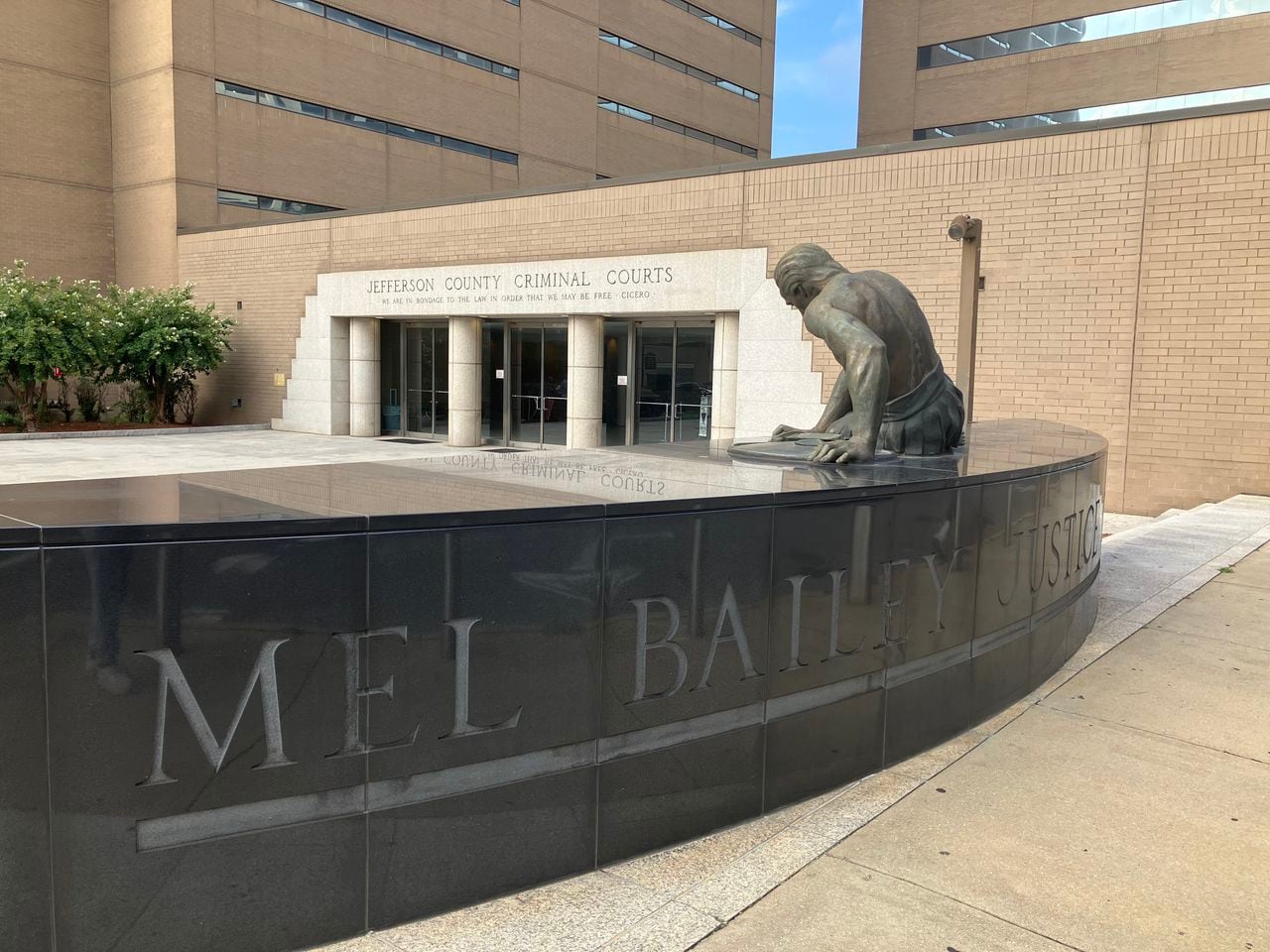New Birmingham program helps first-time offenders clear criminal records
This is another installment in The Birmingham Times/AL.com/CBS42 joint series, “Beyond the Violence: What Can Be Done to Address Birmingham’s Rising Homicide Rate?”
Montress Dunson, 26, graduated from the Jefferson County Reset diversion program in October 2022. He credits the program for helping him secure employment at Hubbell Power Systems, something that would not have happened with a felony on his record, according to advocates.
Reset Jefferson County, a diversion program launched at the Jefferson County District Attorney’s Office, Birmingham Division in March 2022, aims to keep young adults out of the criminal justice system and help first-time offenders get back on track.
Since its inception, the program has served more than 50 individuals and 90% of participants have avoided a felony or misdemeanor conviction, completed the program and have not been rearrested on any new offense. The Hope Unity Fund and Alabama Appleseed Center for Law and Justice are partners.
“We have received so much support from judges, prosecutors in this office and from participants as well. We have had a great, welcoming response to this sort of diversion program,” Reset Coordinator Natalie Campbell said.
In Jefferson County, more than 500 people aged 18-24 are arrested each year for low-level felonies, such as marijuana possession and forgery. In 2019, 75% of people arrested were Black residents, a significantly disproportionate number, according to the district attorney’s office.
“Many [participants] are sometimes in college, early in college, many are usually at their first jobs, just getting out of high school, or getting into the world, or just trying to find themselves, find their place in their life path, or where they are in their life,” said Salaam Green, executive director at the Literary Healing Arts nonprofit and a facilitator of small groups of Reset participants. “Many are young mothers and young fathers. Many are thinking about setting goals for their careers and really coming out of communities where they are looking forward or towards how to start their life, before this happened.”
Felony convictions and jail can leave defendants with a lifetime of problems, including issues with family, education, housing or mental and physical health.
Reset has changed Jefferson County District Attorney Danny Carr’s approach to low-level offenses such as drug possession or theft of less than $1,500.
Now, the district attorney’s office offers the person an opportunity to participate in a supervised community-based program, facilitated by Green.
Participants can express themselves confidentially and share their experiences with others in a safe space.
“It gives them the opportunity to be in a space with other people who have gone through similar situations and circumstances. And if they would like to share what they have written, that gives them an opportunity for camaraderie and also a feeling of not being alone,” Green said. “They also can feel seen, heard and felt by other people.”
In small group workshops at the Desert Island Supply Co. in Woodlawn and the Salvation Army Center of Hope, participants discuss ways to move forward after their arrest.
“I help the participants write out their current goals, and their dreams for the future, and then also have an action plan on how they’re going to get there, and then to sit with other people there to help flesh it out together on how they will flourish after leaving there and perhaps not continue having on this path or having another incident happen,” Green said.
Green said diversion and expungement programs like Reset are important because many people with arrests or convictions lose their jobs, struggle to find new work and struggle with paying court fees, resulting in a spiral of debt.
In a 2018 study, Alabama Appleseed Center for Law and Justice researchers found that among 980 surveyed Alabama residents, more than 80% of participants cut back on basic needs like rent, food, medical bills, car payments, and child support to pay down court debt. Almost 40% of people surveyed with court-related debt committed a crime to pay off their debt.
“In the workshops, they really focus on goals, goal setting, what are they currently dealing with, what led to their arrest,” Campbell said. “Because a lot of my participants are dealing with loss in their family, they’re dealing with financial issues, and struggling with employment, trying to find child care, just the things that burden people, especially young people.”
Reset coordinators said their goal is to hold defendants accountable for their actions, requiring participants to think about the costs and impacts of criminal behavior and the problems it creates for themselves, their family and their community. They also help participants find drug treatment, counseling services or career help.
Campbell said Reset also works with the Salvation Army to coordinate emergency housing and partners with the Jefferson County Family Resource Center to provide participants with IDs, child care and employment referrals.
How the program works
Reset is modeled after New York’s Center for Court Innovation’s Project Reset program, which found that participants were significantly less likely than defendants in a comparison group to be convicted of a new crime within one year, according to a recent study. Center for Court Innovation researchers also documented improved case processing times and case outcomes of the program.
The program is available for young people ages 18 to 24 at their first arrest for certain low-level felonies.
If a person completes the program, the district attorney’s office declines to prosecute the case and the person’s case may be sealed by the court and can be expunged by the state.
Reset works with volunteer lawyers and does not charge a fee to its participants, since most participants live below the poverty line.
If participants fail to complete the program, their case will be prosecuted. Participants are still required to satisfy the victim’s restitution obligations.
Alaina Bookman’s violence prevention coverage and the “Beyond the Violence” series is supported through grants and donations. Contribute here.
